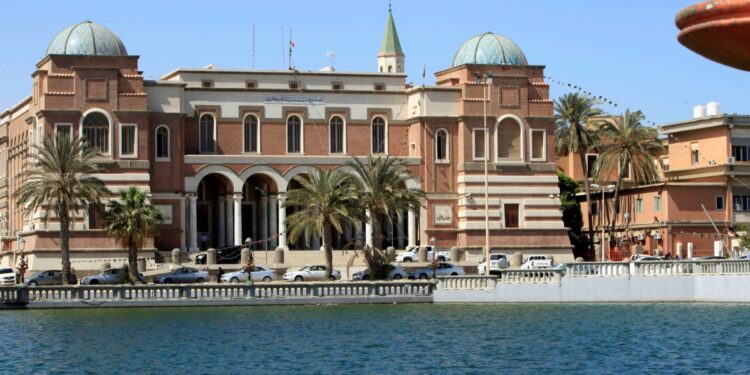The Central Bank of Libya has suspended all operations until a senior bank official who was kidnapped on Sunday is released.
The bank, based in Tripoli, is the only internationally recognised entity for depositing oil revenues, a vital economic asset for a country divided for years between rival governments in Tripoli and Benghazi.
The bank said that an “unknown party” was behind the kidnapping of Musab Muslim, the bank’s IT director, today.
He added in a statement: “The Central Bank of Libya confirms its rejection of these demagogic methods practiced by some parties outside the framework of the law.”
to threaten
The bank added that “some other officials (in the bank) were threatened with kidnapping,” and therefore it decided to “suspend all of the bank’s operations, departments and systems.”
He said: “The bank’s operations will not resume until Mr. Musab Muslim is released and returns to work, such practices are stopped, and the relevant authorities intervene.”
For his part, the US Special Envoy to Libya, Ambassador Richard Norland, said last week that “attempting to forcefully replace the bank’s leadership could result in Libya losing access to international financial markets.”
The US embassy said Norland met with Siddiq al-Kabeer, governor of the Central Bank of Libya, to discuss concerns about armed factions gathering around the bank’s headquarters in Tripoli.
“Disputes over the distribution of Libya’s wealth must be resolved through transparent and inclusive negotiations toward a unified budget based on consensus,” Norland said.
On August 9, at least 9 people were killed and 16 injured in clashes between two factions in the Tajoura area east of the capital, Tripoli.
The Government of National Unity in Tripoli is headed by interim Prime Minister Abdul Hamid Dbeibah, who was appointed as part of a UN-backed process in 2021.



